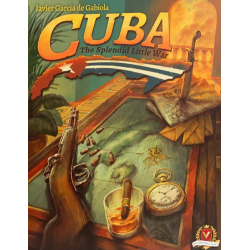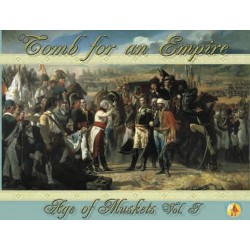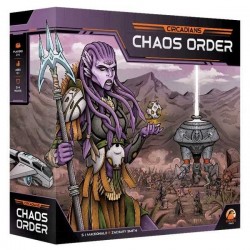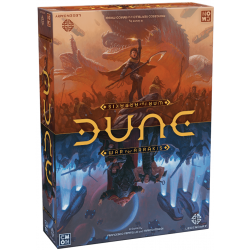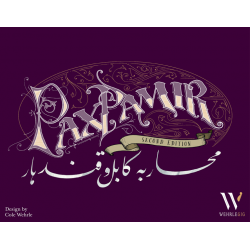No products in the cart.
Active filters
Cuba: The Splendid Little War
Cuba: The Splendid Little War, from designer Javier Garcia de Gabiola, is a two-player simulation of the third War of Cuban Independence, which lasted from 1895 to 1898. (This was the last of the three liberation wars fought between Cuba and Spain; the previous wars were the Ten Years\' War (1868-1878) and the Little War (1879-1880). One player controls the forces of the Spanish colonial government, fighting to retain Cuba; the other player controls the Cuban rebels fighting for their independence.
Age of Muskets Volume I: Tomb for an Empire
Age of Muskets is a rule set that covers the campaigns from the late XVII century to the first half of the XIX. It emphasizes Command and Control as well as the uncertainty and friction of any military operation. Players take command of an army of the period, represented by their headquarters, and control their attached units, their men and equipment. The purpose is to re-create all the relevant factors of war at the operational level in the pre-industrial age.
Circadians: Chaos Order
A competitive, confrontational area control game with highly asymmetric Factions. Each Faction has unique Leaders and Attributes, Buildings, and their own personal win condition.
Dune: War for Arrakis
Arrakis is a desert world seemingly dead and barren, yet here lies the most important resource in the galaxy: Spice. Without Spice, space travel is impossible, and humans become little clusters on isolated planets. The noble House that controls Arrakis and the production of Spice wields great power. The Emperor gave Arrakis to House Atreides, but then he conspired to replace them with their old rivals, House Harkonnen. Baron Harkonnen crushed the Atreides in a treasonous attack, and now rules the planet with an iron fist.
Pax Pamir: Second Edition
In Pax Pamir, players assume the role of nineteenth century Afghan leaders attempting to forge a new state after the collapse of the Durrani Empire. Western histories often call this period "The Great Game" because of the role played by the Europeans who attempted to use central Asia as a theater for their own rivalries. In this game, those empires are viewed strictly from the perspective of the Afghans who sought to manipulate the interloping ferengi (foreigners) for their own purposes.

